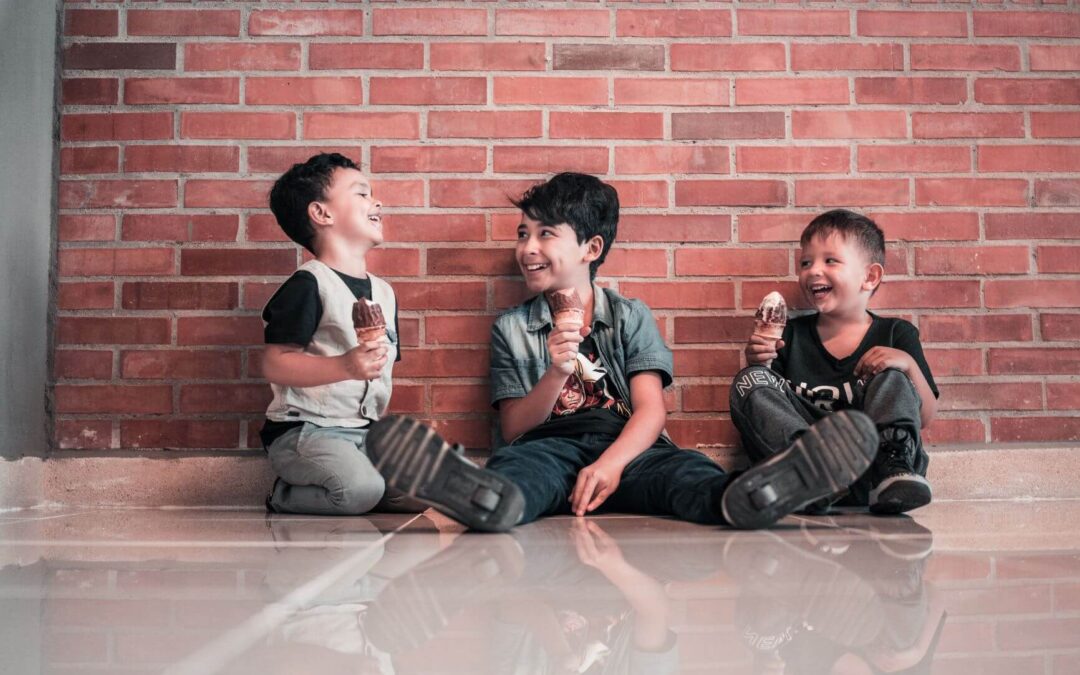Having friends is so important in life. As a parent, you want your child to have good relationships and be able to make and keep friends. Yet, it’s hard for our kids with autism and ADHD to make and retain friendships. I know our son J has struggled with friendships throughout his childhood and teen years. As a teenager, it’s even harder because the social rules are more complex. So how can you help your child with autism/ADHD make friends?
Explaining friendship to your child
One of the first things we need to do is teach our kids what friendship is. You would think it would be obvious, but sometimes it’s not. I’ve heard of kids on the autism spectrum who mistakenly believe bullies are “friends” because they pay attention to them. (It’s highly negative attention, but some kids don’t quite understand this.) Some kids also are confused about acquaintances. They may perceive some kids as “friends” just because know them from school, church or another place or activity.
It’s important to teach your child that friends are people who are nice to them, enjoy doing similar activities together, have fun spending time with them and care about them. Once they have a better understanding of friendship, you can help your child with autism make friends.
Finding friends who have similar interests

I know it’s hard to find other kids who have similar interests when your child has their focused interests. J’s interests over the years have spanned garbage trucks, elevators, tornadoes, Mario Brothers and other video games. Yet, finding kids who have similar interests is one of the best ways to encourage friendships.
Maybe your child’s school has clubs for various interests such as Minecraft, board games, books or other topics. Also, if your child is open to joining groups, look at other organizations such as the 4-H Club, Scouts, Special Olympics or local autism/ADHD support groups. Many of these groups can be inclusive of kids on the spectrum. Introducing your child to others in a safe environment can help them meet more kids who may have similar interests and increase the chance of finding a new friend. Our son J has connected with other kids through our local Special Olympics team and looks forward each year to running track and seeing the people on the team he has come to know over the years. He also enjoys attending a summer camp offered by our local autism support group, and he has made friends there too.
Scheduling play dates
Helping your child through social interactions can be handled better if you plan play dates for your child and their friend with the parent of the other child.
Encouraging your child to interact with other kids either at your home, their home or in a neutral setting such as a playground can help them feel comfortable. They can get to know the other child outside of school or other setting where they met. It also helps you be able to watch them and provide some coaching or redirection if needed. For instance, they may need reminders to play “with” their friend instead of directing the play or insisting their friend does only what your child wants to do. I know that has been a challenge for J over the years, but he has gotten a bit better as he has gotten older.
Working with your child’s therapists
One way to help your child improve their ability to make and retain friends is to work with their therapists. I know J has talked to his behavior therapist over the years about friends and having her help him through tough situations and discuss ideas about how to approach potential friends. She has helped him better understand the other child’s perspective.
When J was in elementary school, his speech therapist used role play and other tools to help him learn how to approach other kids and what steps he needed to take to make friends.
Supporting friendships and offering praise

When J has made a friend, we have tried to be supportive of that friendship by getting to know his friend and his friend’s parents. We want his friend to feel comfortable at our house, and we try to run interference when appropriate when conflict arises.
If your child is young, make sure you offer praise when you see them taking positive steps to make friends.
Our kids – like all of us – need friends. It is up to us to help our children make friends. Have you found ways to successfully help your child make friends? Leave a comment and share your ideas with others!








